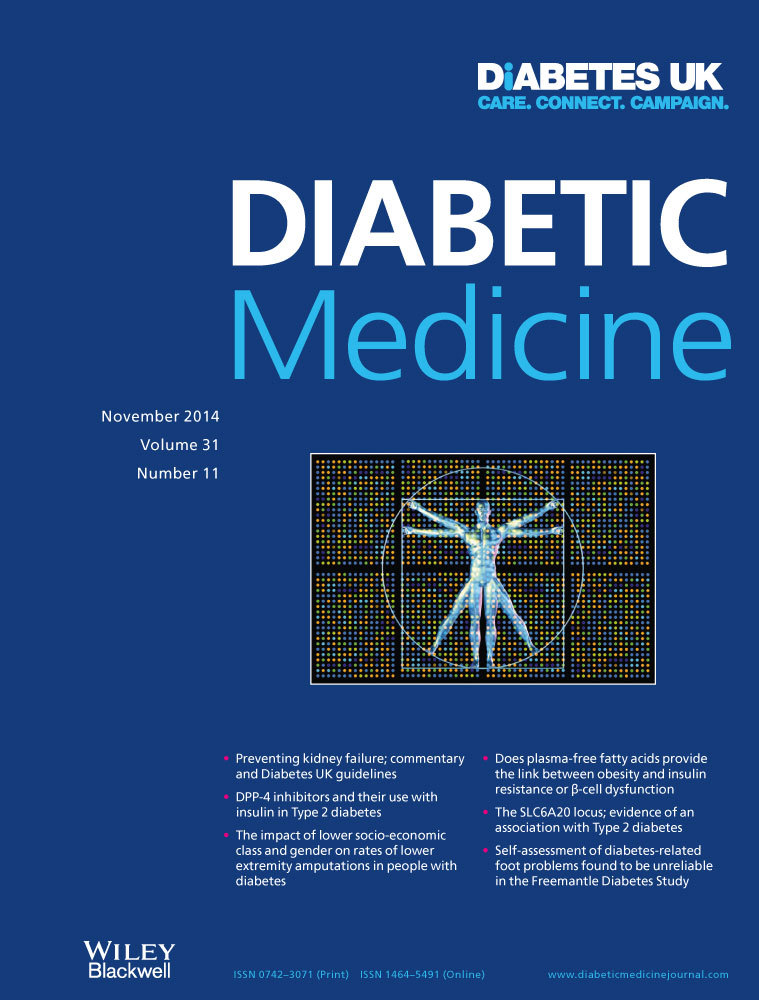Assessment of diabetes acceptance can help identify patients with ineffective diabetes self-care and poor diabetes control
Abstract
Aims
To estimate the associations between insufficient diabetes acceptance and relevant diabetes outcomes.
Methods
A total of 320 patients completed questionnaires on diabetes non-acceptance (the Acceptance and Action Diabetes Questionnaire), diabetes distress (the Problem Areas in Diabetes Scale), depressive mood (the Center for Epidemiologic Studies Depression Scale), coping with illness (the Freiburg Questionnaire of Coping with Illness), self-care activities (the Summary of Diabetes Self-Care Activities Measure) and quality of life (the Short Form−36 Health Questionnaire). A six−item version of the Acceptance and Action Diabetes Questionnaire showing good reliability and validity was established, and the associations between insufficient acceptance and clinical outcomes were estimated.
Results
Higher diabetes non-acceptance correlated significantly with less active coping (−0.37), reduced self-care (−0.43) and higher HbA1c levels (0.31), higher diabetes distress (0.53) and more depressive symptoms (0.36). Correlations of diabetes non-acceptance with diabetes self-care/glycaemic control were significantly higher than were those of depressive mood or diabetes distress with these criteria.
Conclusions
Low diabetes acceptance is associated with impaired self-care and glycaemic control. Assessment of diabetes acceptance may facilitate the detection of patients at high risk and may present an essential target for treatments to improve diabetes control that is more relevant than elevated depressive mood or diabetes distress.




